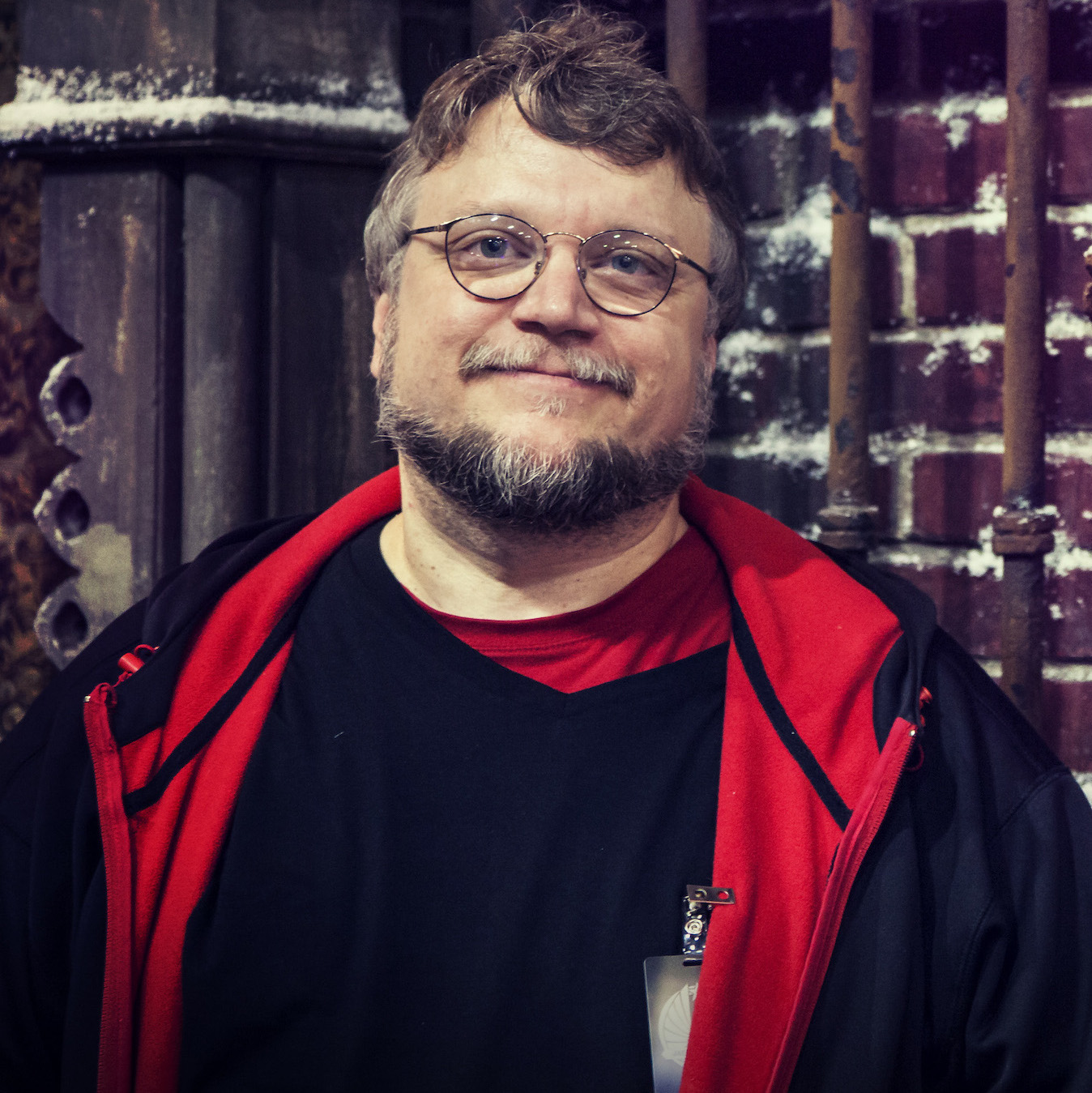Ebertfest 2016 runs from April 13th through April 17th in Champaign, Illinois. To purchase tickets, click here. The following article was written by Ebert Fellow Shalayne Pulia of The Daily Illini.
Originally marketed by its distributor, Universal, as a horror film, Guillermo del Toro’s “Crimson Peak” launched the 18th edition of Roger Ebert’s Film Festival Wednesday at The Virginia Theatre. Fans of the festival, del Toro’s “Gothic romance,” and del Toro alike filled the theater.
Most of the moviegoers stayed for a post-screening Q&A introduced by Chaz Ebert, co-founder, producer and host of the festival. RogerEbert.com contributor Sheila O’Malley guided a discussion with director del Toro, but he didn’t need much help. The director best known for “Pan’s Labyrinth” kept the crowd with him the entire hour-long session. No question took him by surprise.
Here are 21 excerpts from the post-screening discussion, and from a backstage interview following that discussion:
1. “I don’t do movies for demographics. I make them for myself. I don’t give a movie two, three years of my life if I don’t absolutely adore it.”
2. “[‘Crimson Peak’] is not a ghost story. It is a story with a ghost in it.”
3. “I always say the first movie is a date, a blind date. Second movie is a proper date. Third one is flirtatious. Fourth time you see a movie, you’re married—or you should be if you want to make it an honorable movie.”
4. “I think film is a symphonic storytelling tool. It’s not just plot. The story is told through movement, through camera, through accents of light, through composition and so forth.”
5. “I’m every character in this movie—the good guys, the bad guys, everything.”
6. “In Gothic romance, the house or building, being an abbey, a castle, whatever you choose … the edifice—and there’s always an edifice—represents the moral corruption of its inhabitants.”
7. “I wanted the house to be completely real. I didn’t want a single portion of the house to be [computer generated]. So we built all three-and-a-half stories of the house. For me to climb three stories for a f****** movie, I have to love it very much.”
8. “I think Gothic is born out of a counter movement to re-embrace romance, to re-embrace emotion.”
9. “From the get-go, I wanted to leave the rescuing to the lady. I didn’t want the lady to be rescued by f****** Fabio.”
10. “What I love about writing female characters is that you don’t have to idealize them. You can have a monstrous character and a beautiful character and write them with mistakes.”
11. “I think beauty and strength together are very important because we are told socially that you can be either beautiful or strong.”
12. “I have written or co-written 23 movies, and I’ve made only nine … I do movies that I love. I wait for them. I lose a couple of years, three years. I don’t care.”
13. “If you think your budget was enough at one point, you’re f****** up. You should always be three times more ambitious than your budget.”
14. “I don’t want to deconstruct any genre I love. I have no interest in that. I want to reconstruct every genre that I love.”
15. “People confuse what I like with what I do. I love horror, but I’m not interested as much as a director as I am as a producer. As a director, I’m not as interested in the mechanics of horror as the form of it and the fairytale power of horror.”
16. “There are two painters in pop that I love, Andy Warhol and [Roy[ Lichtenstein. I think that what they do is they force us to look at things that are considered mundane in new ways by re-coloring and blowing them up, all that. That’s what I try to do with the movies I do.”
17. “The essence of romance is being blind to the defects and being blind to the darkness and so forth. And the essence of love is seeing that and accepting it. And the idea is ghosts are admissible to some, but not to all. And this is a theme I love exploring.”
18. “I think that there are two ways you can approach a movie. One, as an audience, you don’t owe the movie anything. You just see it. Either it does its job or it doesn’t. Period. It ends there. As a piece of art, it’s a different commitment. As a piece of art, you benefit from context, from learning, from knowing if it’s trying to express one thing or another.”
19. “Normally, I suffer horribly [traveling with and introducing] a movie anywhere. It’s like dancing Lambada in your underwear. You’re like, ‘Oh I should have gone to the gym a little more.’”
20. “To me [the Ebertfest screening] was about closure with ‘Crimson,’ because it’s a movie I love dearly that was sold as something it was not. It was sold as a horror movie and it wasn’t.”
21. “As storytellers we are born with or we experience an enormous void as kids. And all the horror and all the pain, the cracks in our structure come from our childhood. So you never quite truly heal until late, late, late in life. So as you’re healing through your stories, you are drawn to the same motifs.”











